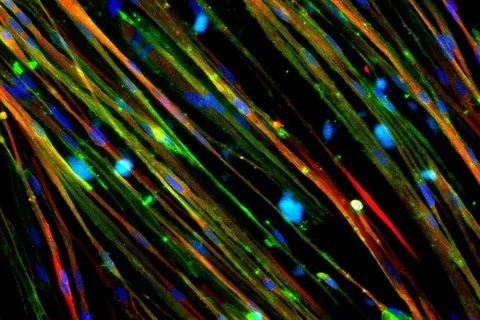UCLA plays pivotal role in first gene therapy for Duchenne muscular dystrophy

Scientists at the Center for Duchenne Muscular Dystrophy at UCLA have been making strides toward better treatments for the disease the organization is named for, recently helping get Food and Drug Administration approval for Sarepta’s gene therapy Elevidys.
UCLA was one of the first sites to conduct clinical trials of the drug — which Time magazine called one of the best inventions of 2024 — and has treated 12 patients commercially since the drug’s expanded FDA approval in June. An additional 34 patients are currently seeking insurance approval.
Duchenne muscular dystrophy, or DMD, is a progressive muscle-wasting disease that begins in childhood and leads to premature death as the muscles that power the heart, lungs and other vital organs fail. DMD affects many systems of the body, requiring care from multiple specialists, including neurologists, cardiologists, pulmonologists, gastroenterologists, nephrologists, endocrinologists and orthopedists. UCLA’s Center for Duchenne Muscular Dystrophy (CDMD) was founded to provide multidisciplinary care, conduct translational research and improve access to clinical trials and treatments.
Read more about CDMD's care model